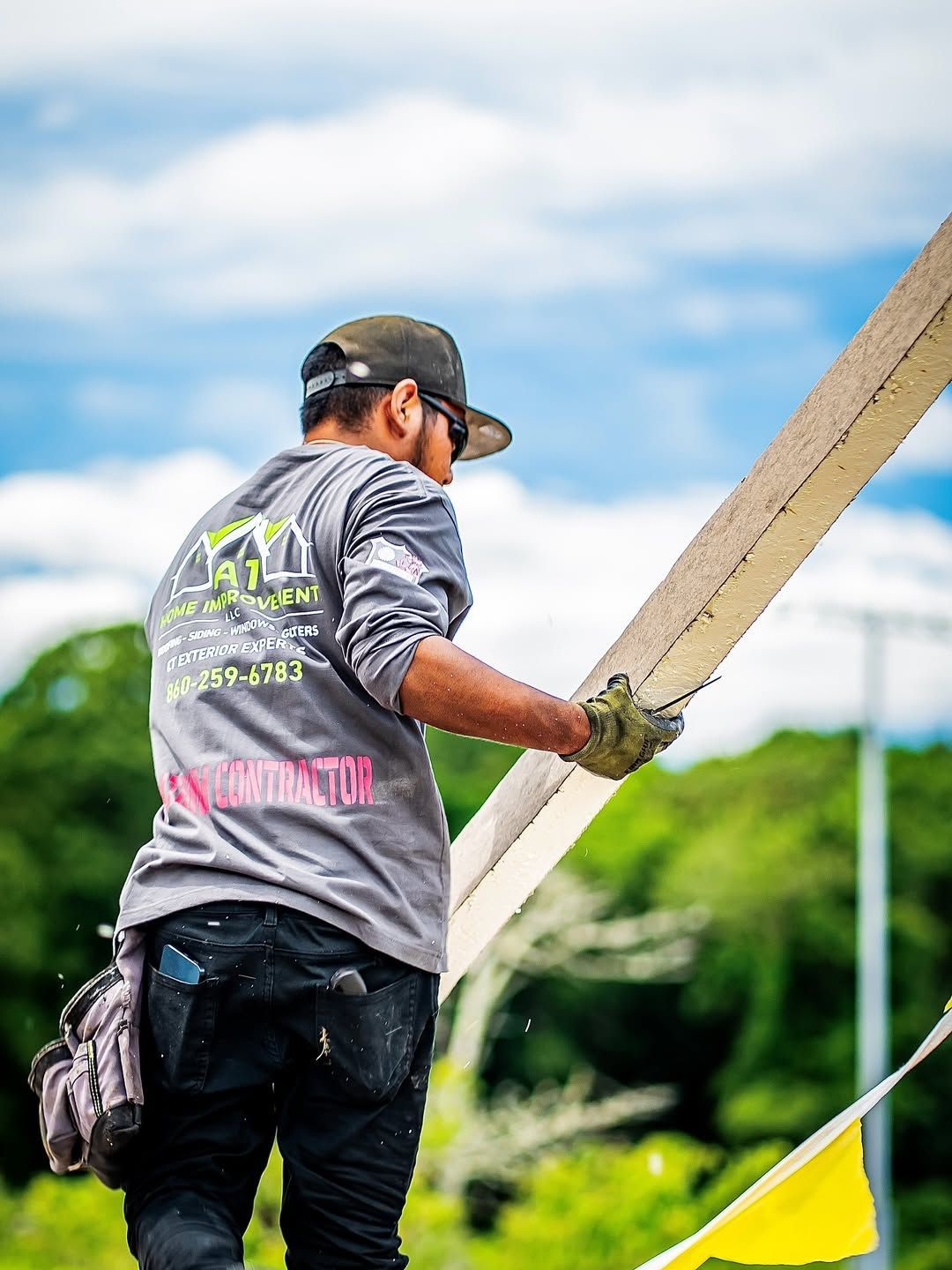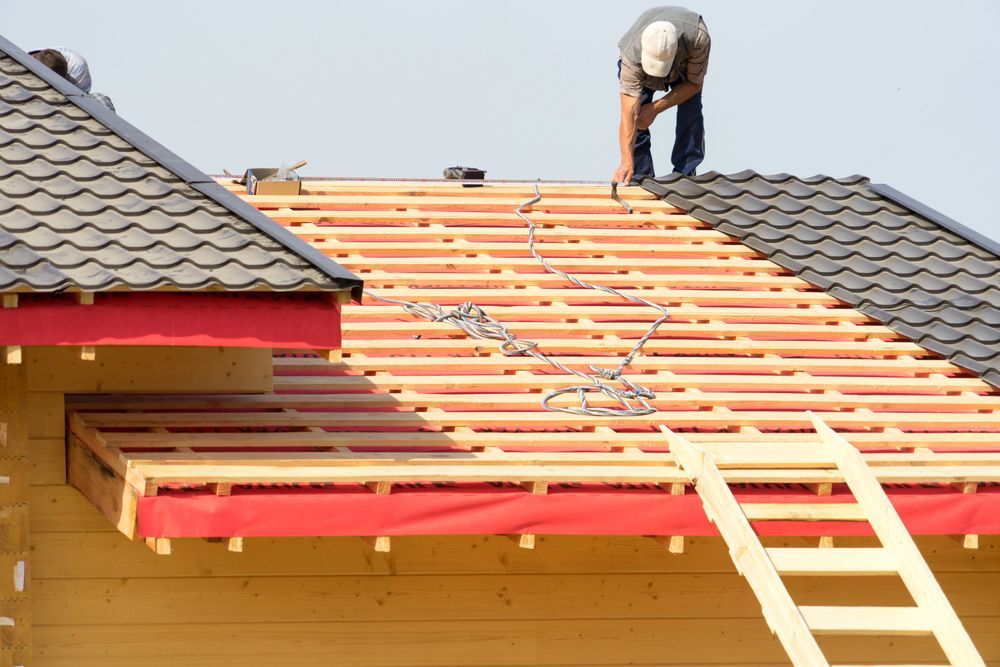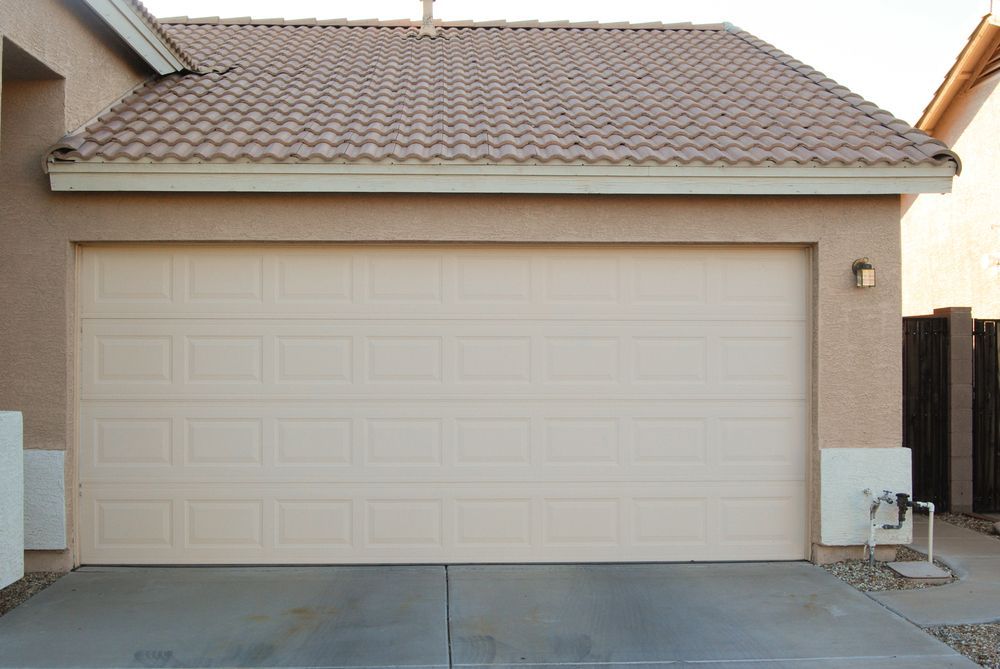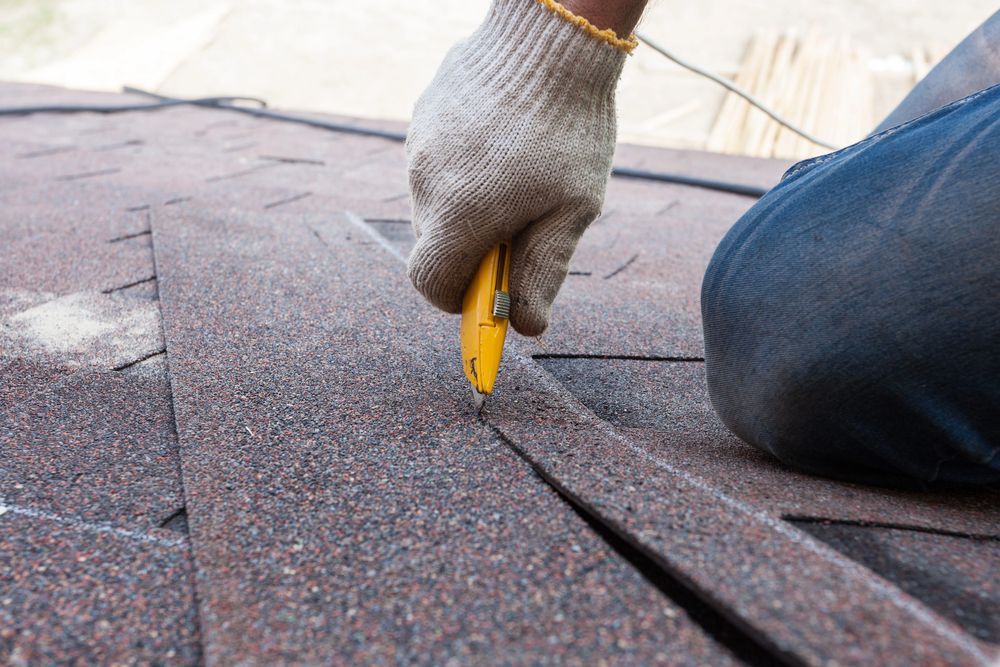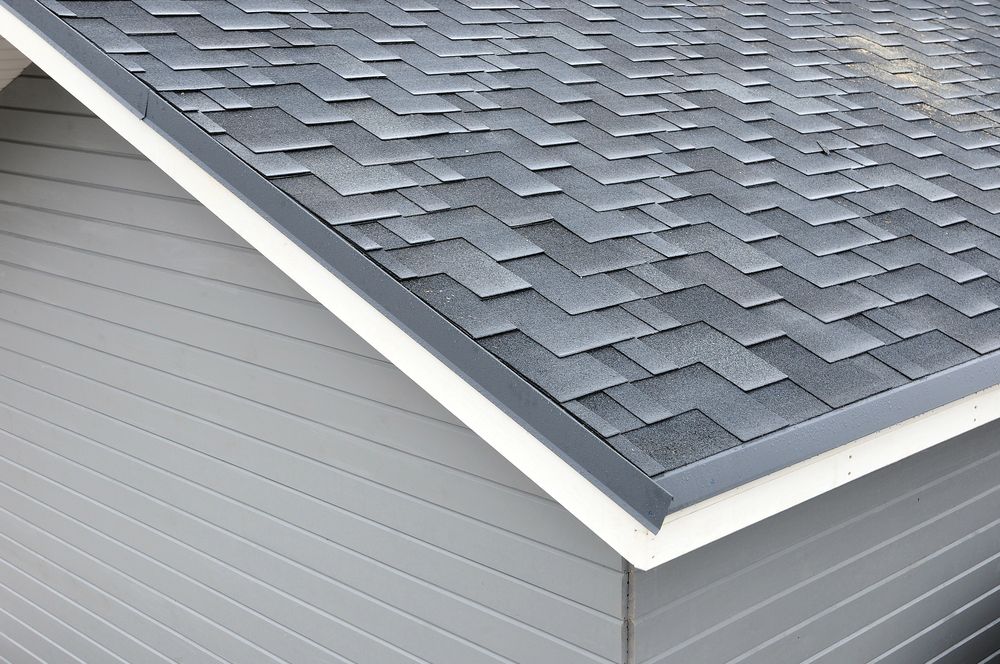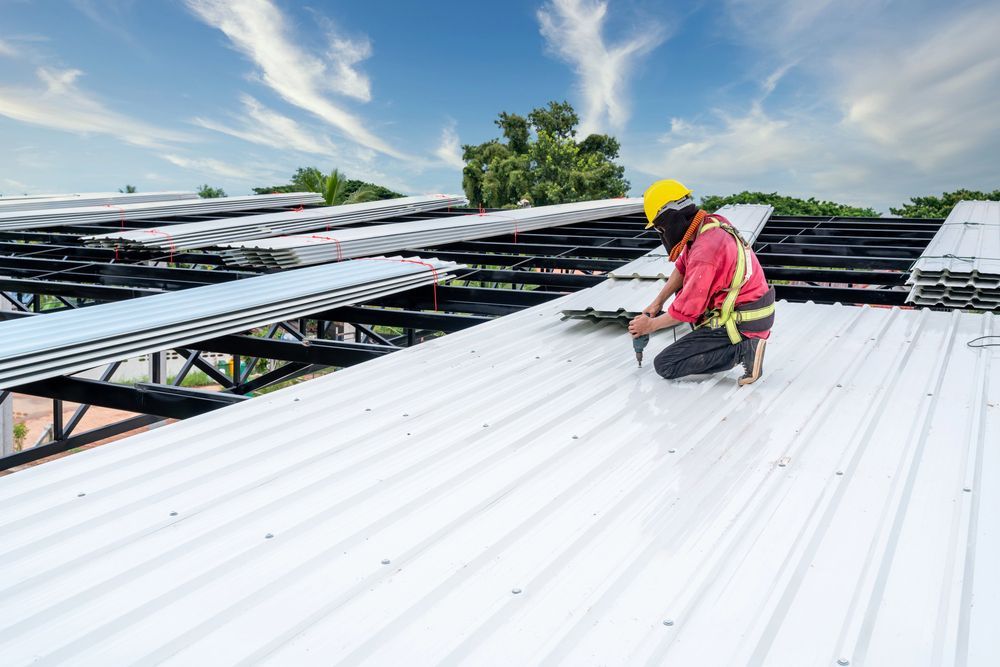What’s the Replacing Garage Roof Cost in 2025?
Wondering how much “replacing garage roof cost” will be in 2025? Costs vary widely from $1,000 to $40,000, influenced by factors like size, pitch, and materials. This guide will break down these costs and show you what to expect so you can budget effectively.
Key Takeaways
- The cost to replace a garage roof in 2025 ranges from $1,000 to $4,000, with specific costs depending on factors such as size, pitch, and chosen materials.
- Different roofing materials have varying costs: asphalt shingles ($4,000 - $8,000), metal roofs ($10,000 - $20,000), tile roofs ($15,000 - $30,000), and slate roofs ($20,000 - $40,000) for a 1,000 square foot roof.
- Hiring a professional roofer ensures correct and safe installation, adheres to safety protocols, and provides warranties, though the initial costs are higher compared to a DIY project.
What’s the Replacing Garage Roof Cost in 2025?
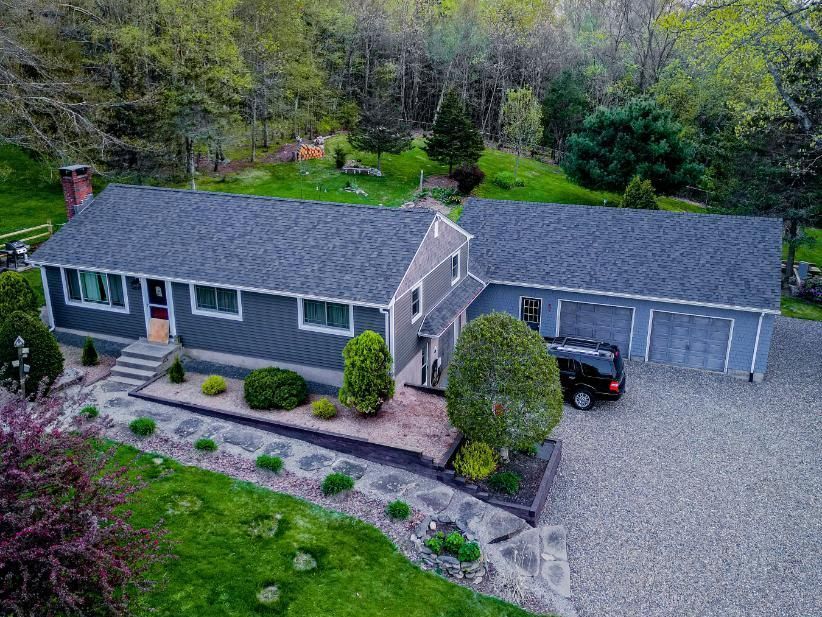
When considering a garage roof replacement in 2025, one of the first questions that come to mind is, “How much does it cost?” On average, the cost to replace a garage roof ranges from $1,000 to $4,000, depending on factors such as size, pitch, and materials used. This range can vary significantly, with costs per square foot averaging between $300 and $600, inclusive of materials and installation.
For a 1,000-square-foot garage roof, you might spend anywhere from $4,000 to $40,000, depending on the material and any additional repairs needed. The type of materials you choose can drastically impact the total cost to replace your garage roof. Here are some average costs for different types of materials:
- Asphalt shingle roof: $4,000 - $8,000
- Metal roof: $10,000 - $20,000
- Tile roof: $15,000 - $30,000
- Slate roof: $20,000 - $40,000
Understanding these averages can help you budget more effectively for your roofing project.
Introduction
Replacing a garage roof is not just about fixing an old roof; it’s about safeguarding your home and ensuring its longevity. Roof replacement is crucial for:
- maintaining the quality of your home
- protecting it from leaks
- providing financial benefits such as increased property value, reduced insurance premiums, and improved energy efficiency.
This guide will take you through:
- The average costs associated with garage roof replacement
- The factors that can affect these costs
- How different materials compare
- Additional costs and considerations
- The pros and cons of DIY versus hiring a professional
- Financing options
- Cost-saving tips
By the end, you’ll have a clear understanding of what to expect and how to approach your garage roof replacement project.
Average Cost to Replace a Garage Roof
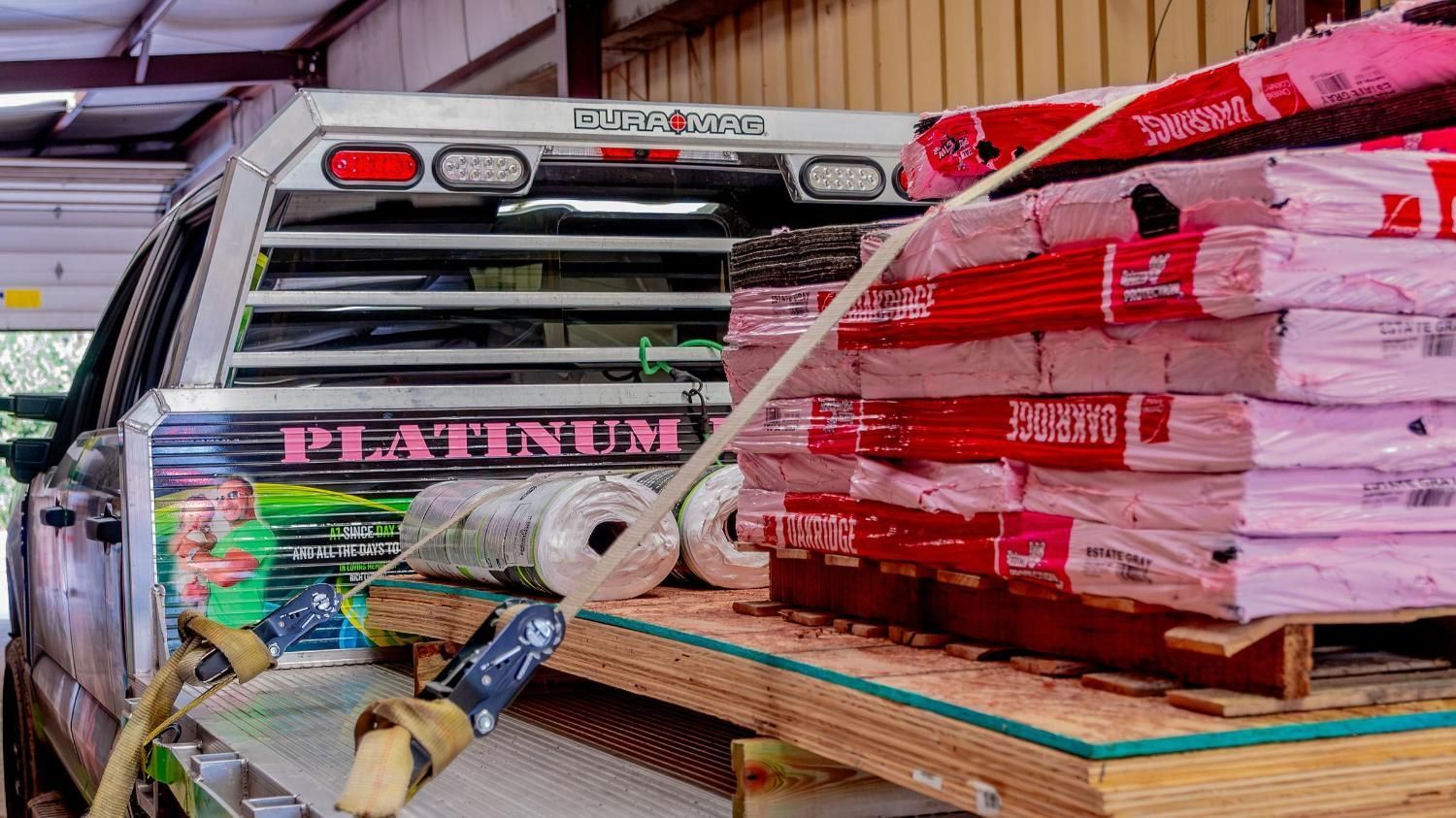
The average cost to replace a garage roof can vary widely based on several factors. Typically, replacing a 1,000-square-foot garage roof can cost anywhere from $4,000 to $40,000, depending on the material and any additional repairs required. This wide range is influenced by the type of roofing material you choose, the complexity of the roof design, and the condition of the existing roof.
For instance, the cost per square foot for a new roof ranges from $300 to $600, which includes both materials and installation. If your roof requires extensive repairs or if you’re opting for premium materials, such as slate or metal roofing, the costs can escalate quickly. Understanding these averages can help you prepare a more accurate budget for your roofing project.
Factors Affecting Garage Roof Replacement Costs
Several factors can influence the overall cost of replacing your garage roof. Key among these are:
- The size and shape of the roof
- The choice of roofing materials
- Labor costs Additional considerations include roof complexity, accessibility issues, and the removal and disposal of the existing roof.
Let’s delve deeper into each of these factors to understand how they impact your roof replacement cost.
Size and Shape of the Garage Roof
The size and shape of your garage roof play a significant role in determining the overall cost of the replacement. Larger roofs require more materials and labor, which naturally increases the cost. Additionally, a roof with a steep pitch or intricate design can be more challenging to install, driving up labor costs due to the complexity of the work involved.
Roofing Material Choices
Your choice of roofing materials can have a profound impact on the overall cost of your garage roof replacement. Some common roofing materials and their costs include:
- Asphalt shingles: $2 to $5 per square foot
- Metal roofing: $5 to $12 per square foot
- Wood shingles: $6 to $9 per square foot
- Slate roofing: $15 to $30 per square foot
Asphalt shingles are known for being affordable and easy to install, making them a popular choice for many homeowners looking for a cost-effective solution.
On the other hand, premium materials like metal roofing, which can cost between $5 and $15 per square foot, offer greater durability and a longer lifespan. Other options include wood shakes, slate tiles, and EPDM membrane roofing, each with its own cost and benefits. Understanding the pros and cons of each material can help you choose the best option for your needs and budget.
Labor Costs
Labor costs can vary significantly depending on several factors, including the contractor’s experience, regional labor rates, and the complexity of the roofing project. On average, contractors may charge between $40 and $60 per hour, with total labor costs ranging from $150 to $300 per square foot. Labor costs can make up approximately 60% of the total expense when replacing a roof. This highlights the significant impact of labor on the overall cost.
The complexity of the roof also plays a crucial role in determining labor costs. Steep roofs, roofs with multiple layers, or those with built-in features like skylights can increase the labor required and, consequently, the cost. Regional differences in labor rates can also impact your overall costs, making it essential to get quotes from several contractors to find the best deal.
Cost Comparison by Roofing Material
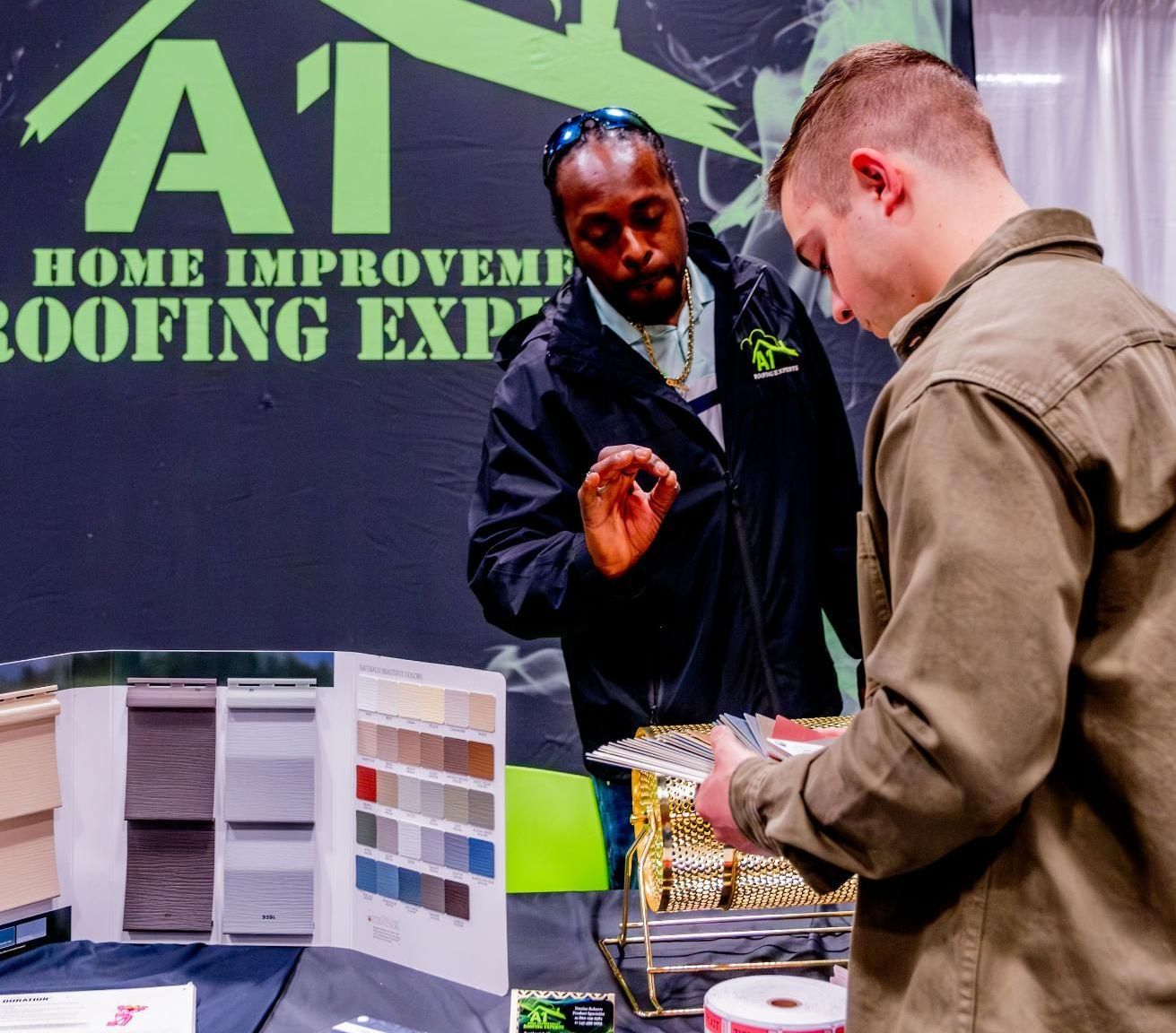
When it comes to choosing the right roofing material for your garage, cost is a significant consideration. Different materials come with varying price tags, lifespans, and maintenance requirements.
Let’s compare some of the most common roofing materials to help you make an informed decision.
Asphalt Shingle Roof
Asphalt shingles are the most affordable and widely used roofing material. Here are some key features of asphalt shingles:
- Cost: Between $2 and $5 per square foot
- Lightweight and easy to install
- Customizable options available
- Lifespan: Typically lasts between 15 to 30 years
These qualities make asphalt shingles a favorite among homeowners, offering a good balance between cost and durability when considering a new asphalt shingle roof.
The overall cost of an asphalt shingle roof can range from $5,000 to $18,000, depending on the size and complexity of the roof. Despite their affordability, asphalt shingles come in a variety of colors and styles, allowing you to choose an option that complements your home’s aesthetic.
This makes them a versatile and cost-effective choice for many roofing projects.
Metal Roofing
Metal roofing is a more expensive option, with costs ranging from $5 to $15 per square foot. However, the higher price tag comes with several benefits, including:
- Exceptional durability
- A lifespan that can exceed 50 years
- Resistance to extreme weather conditions, making them ideal for areas prone to heavy snowfall or high winds.
While the initial investment is higher, metal roofing can offer long-term cost savings through reduced maintenance and repair costs. Additionally, metal roofs are energy-efficient and environmentally friendly, as they can be made from recycled materials and are fully recyclable at the end of their lifespan. This makes metal roofing a smart choice for homeowners looking to invest in a durable and sustainable roofing solution.
Additional Costs and Considerations
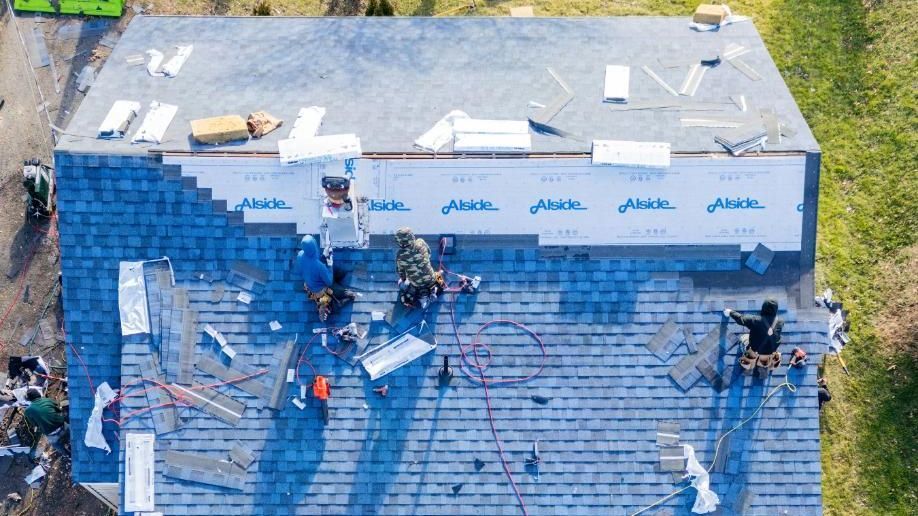
Beyond the primary costs of materials and labor, several additional expenses can impact the total cost of your garage roof replacement. These include roof inspection costs, permit fees, and clean-up and disposal fees.
Roof Inspection Costs
Roof inspections are an essential part of the roof replacement process. A basic inspection can cost between $150 and $350, while more complex inspections by specialized inspectors can range from $400 to $800.
These inspections can help identify any underlying issues that need to be addressed, including potential roof repairs, before the roof installation, ensuring a high-quality and durable result for the entire roof.
Permits and Building Codes
Adhering to local building codes and obtaining the necessary permits is crucial for any roofing project. Here are some important points to consider:
- Permit fees can range from $100 to $1,000, depending on your location.
- Failing to secure the proper permits can result in fines and delays.
- Clean-up and Disposal Fees
Removing the old roofing material and disposing of it properly is another cost to consider. Clean-up and disposal fees can range from $1 to $5 per square foot, with the total cost for removing an existing roof typically ranging between $1,000 and $1,500. These fees cover the labor involved in tearing off the old roof and the cost of hauling away the debris, ensuring a clean and safe worksite.
DIY vs. Hiring a Professional
Deciding whether to tackle your full roof replacement for your garage as a DIY project or hire a professional is a significant consideration. While DIY can offer labor cost savings, it comes with risks and potential hidden costs. Hiring a professional ensures expert installation, adherence to safety protocols, and the availability of warranties.
Let’s explore the pros and cons of each approach.
Risks of DIY Roof Replacement
Opting for a DIY roof replacement might seem like a cost-effective solution, but it carries several risks. Mistakes during the replacement process can lead to structural issues, water damage, and costly repairs. For instance, improper installation can compromise the roof’s ability to protect your home, resulting in leaks, mold growth, and damage to the attic and framing.
Additionally, DIY projects lack the professional warranty that comes with hiring a licensed contractor. This means that any issues that arise post-replacement will be your responsibility to fix, potentially negating any initial cost savings. The complexity and potential hazards of roofing work make DIY a risky and challenging option for most homeowners.
Benefits of Hiring a Professional
Hiring a professional roofing contractor offers several advantages that can outweigh the initial cost savings of a DIY project. Professional roofers bring expertise and experience, ensuring that your roof is installed correctly and safely. They adhere to strict safety protocols, reducing the risk of accidents and injuries during the project. Moreover, professional roofers use high-quality materials that can enhance the durability and lifespan of your roof.
Another significant benefit of hiring a professional is the warranty that often comes with their work. Many roofing contractors offer warranties ranging from a few years to several decades, providing peace of mind and protection against future issues. This warranty can cover both materials and workmanship, ensuring that any problems that arise are addressed promptly and without additional cost to you.
Evaluating multiple quotes and checking the credentials and warranties of potential contractors can help you choose the best professional for your roofing project.
Financing Options for Garage Roof Replacement
Financing a garage roof replacement can be challenging, but several options are available to help manage the costs. Some options to consider include:
- Personal loans
- Home equity loans
- Credit cards
- Roofing company financing
Each option has its pros and cons, so it’s important to carefully consider which one is the best fit for your situation.
Understanding these financing methods can help you choose the one that best fits your financial situation and needs.
Homeowners Insurance
Homeowners insurance can sometimes cover the cost of a roof replacement if the damage is due to accidents, natural disasters, or severe weather. It usually doesn’t cover normal wear and tear that occurs over time. This is a common exclusion in warranty policies. It’s important to check your policy and understand what is covered, including any deductibles you may need to pay.
Insurance may also require that the work be done by a licensed contractor, so DIY repairs might not be reimbursed.
Payment Plans and Loans
Home equity loans and Home Equity Lines of Credit (HELOC) are popular options for financing roof replacements. These loans are secured against your home, often offering lower interest rates compared to personal loans. A HELOC works similarly to a credit card, allowing you to borrow as needed against the equity in your home. This flexibility can be beneficial for managing unexpected costs during the roofing project.
Many roofing companies also offer financing options, often through third-party lenders. These plans can spread the cost over several months or years, making the project more affordable in the short term. Credit cards with promotional 0% interest rates can be another option, provided the balance is paid off before the promotional period ends to avoid high interest charges. Exploring these options can help you find the best way to finance your garage roof replacement without straining your budget.
Cost-Saving Tips for Garage Roof Replacement

Replacing a garage roof can be expensive, but there are several strategies to help reduce costs. Obtaining multiple quotes from contractors, scheduling the project during off-peak times, and considering the reuse of salvage materials are all effective ways to save money.
These tips can help you manage your budget more efficiently while still ensuring a high-quality roof replacement.
Get Multiple Quotes
One of the best ways to ensure a fair price for your roof replacement is to obtain multiple quotes from different roofing contractors. This allows you to:
- Compare and choose the best option for your budget and needs
- Compare prices, materials, and workmanship quality
- Gain a better understanding of your options
Aim to get at least three quotes to have a good range of choices and negotiate for the best possible price.
Off-Season Scheduling
Scheduling your roof replacement during off-peak times, such as winter, can lead to significant cost savings. Contractors are often less busy during these periods and may offer discounts to secure work. Additionally, you might benefit from faster project timelines as contractors have more availability and flexibility.
Salvage Materials
Reusing undamaged materials from your existing roof can significantly reduce the overall replacement cost. Salvaging materials like tiles or metal sheeting not only saves money but also helps reduce waste, making your project more environmentally friendly. This approach is especially useful if the materials are still in good condition and can be integrated into the new roof.
Summary
Replacing your garage roof is a significant investment, but understanding the costs involved and the factors that influence them can help you make informed decisions. From choosing the right materials and understanding labor costs to considering additional expenses and financing options, this guide has covered everything you need to know about garage roof replacement in 2024.
Taking the time to research and plan your roofing project can lead to better outcomes and potential cost savings. Whether you opt for a DIY approach or hire a professional, the key is to ensure that your new roof is durable, efficient, and adds value to your home. Don’t hesitate to explore all your options and seek professional advice to make the best choice for your needs.
FREQUENTLY ASKED QUESTIONS
Have Questions? We Have Answers
Share this Post
